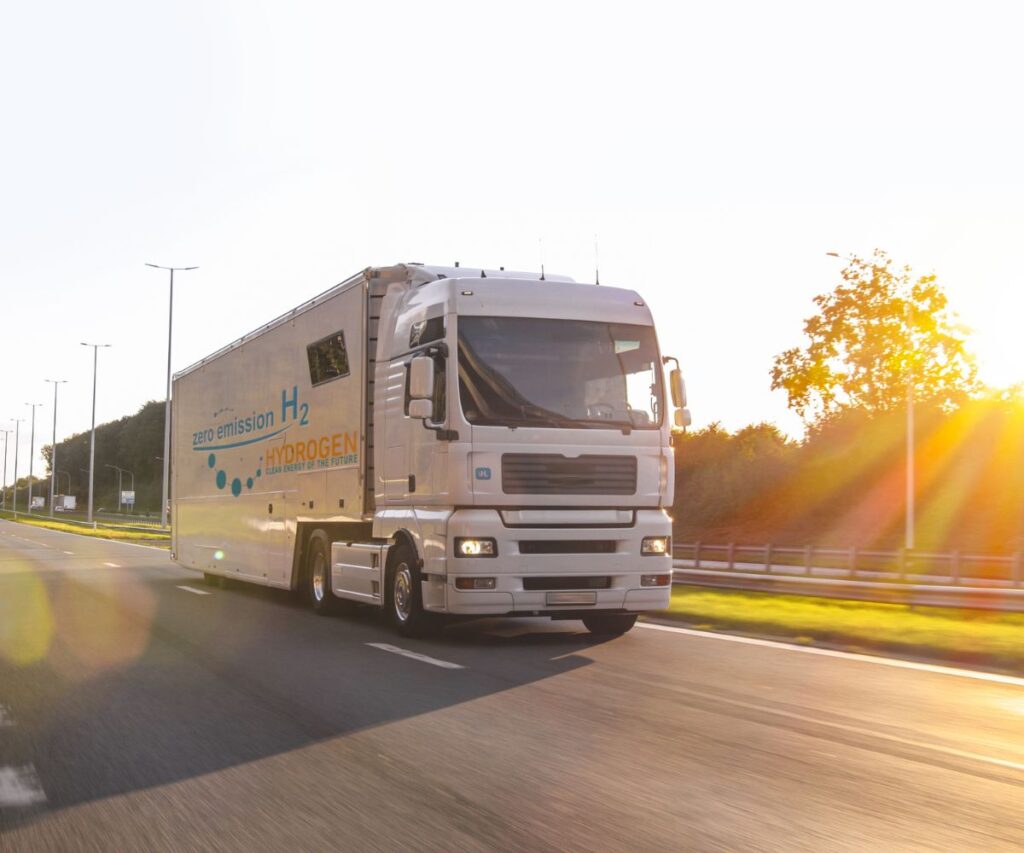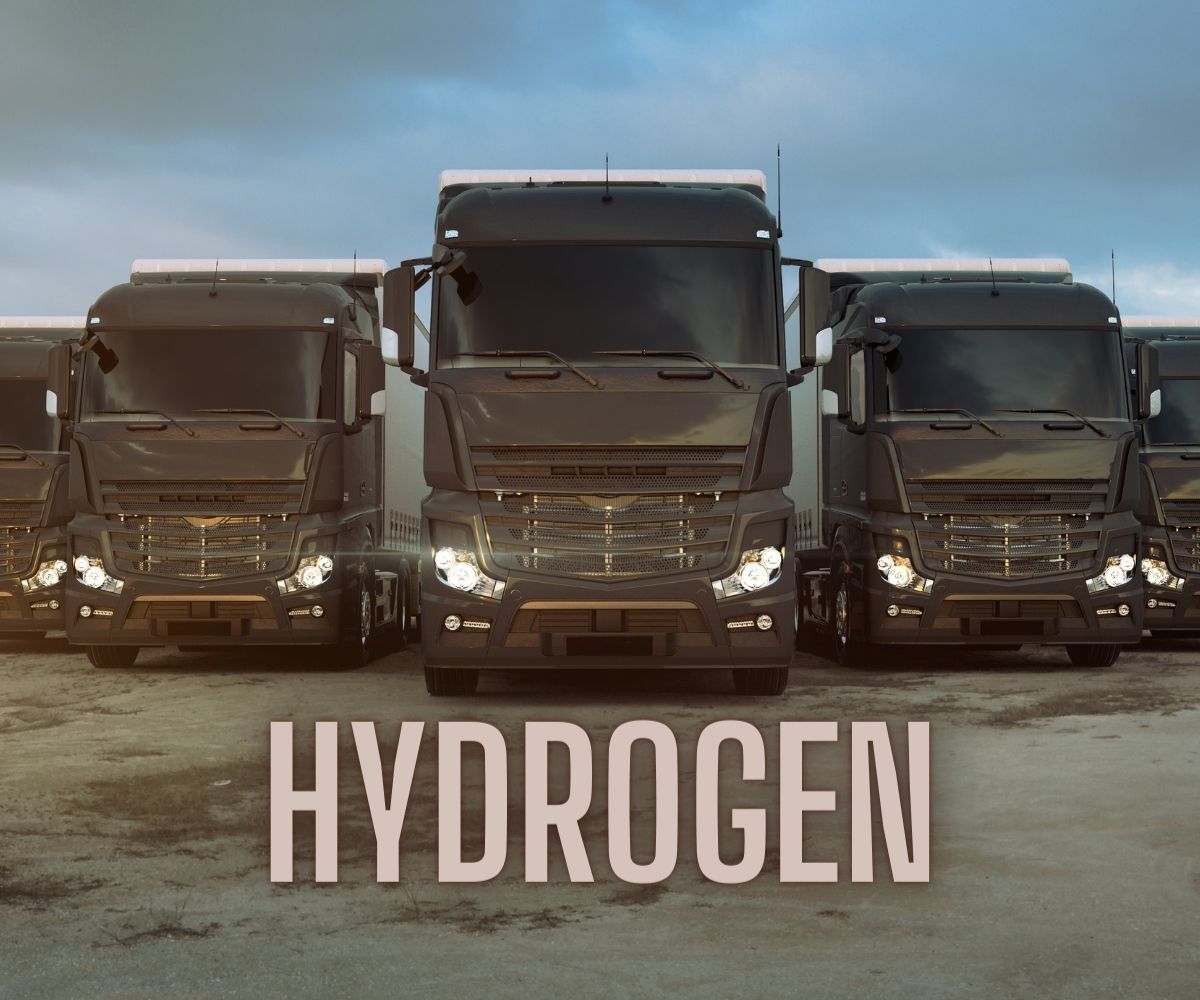California truckers are getting on board with hydrogen fuel cells

While some truckers say it gives them more power and range, the tech still lags behind battery electrics.
As the transport industry in California works to decarbonize to meet climate goals, truckers are looking to alternatives to conventional diesel engines and are finding hydrogen fuel cells increasingly appealing.
The technology remains new and there isn’t much in terms of a refueling network yet.
Though battery electric vehicles are definitely more established in the passenger vehicle market, truckers aren’t impressed with the lack of range, long recharging times and reduced power they would need to face if they were to adopt that option to decarbonize. For that reason, many are looking into hydrogen fuel cells as an alternative. The comparatively large range, rapid refueling time and power comparative to diesel has significant draw.
Still, as the technology is still in its early days in trucking transportation, and refueling networks are exceptionally limited, truckers willing and able to adopt the technology know that they could have substantial expenses and challenges ahead.
“I am always worried about first-generation technology,” said Jim Gillis, the President of the Pacific Region for IMC, a company based in Collierville, Tennessee. That said, Gillis will be receiving delivery of his first H2 fuel cell truck in coming weeks and expects to operate 50 of them by the close of next year. “As fancy as it all looks, I know going into it that we are going to have some problems.” IMC is seeking to overhaul its fleet to meet California’s upcoming commercial truck zero-emission requirements.
Hydrogen fuel cells still help to overcome bigger challenges presented by battery electric transport trucks.
As of the start of next year, new trucks calling at Californian seaports must be zero-emission vehicles. Furthermore, California also requires that a rising percentage of vehicle sales and fleets must use clean fuels, with the intention of leaving diesel behind within a span of twenty years.
California’s decarbonization regulations are the strictest in the United States. That said, other states have their eyes on California and are likely to follow as California irons out the details.
Diesel truck sales
That said, while the regulations in California have caused truckers to investigate hydrogen fuel cells, it has also led to a run on diesel-powered trucks, as carriers scramble to boost their fleets with the known technology before January 1, 2024.
Q: What is a hydrogen fuel cell semi truck?
A: A hydrogen fuel cell semi truck is a type of transport vehicle that uses hydrogen fuel cells to power its electric motor. The hydrogen fuel cell generates electricity by combining hydrogen and oxygen in a chemical reaction, with only water and heat as by-products.
Q: How does a hydrogen fuel cell semi truck work?
A: A hydrogen fuel cell semi truck works by converting the chemical energy stored in hydrogen gas into electricity. The hydrogen gas is stored in high-pressure tanks on the truck. When the truck needs power, hydrogen is fed into the fuel cell where it combines with oxygen from the air in a chemical reaction that produces electricity and water. This electricity is then used to power the electric motor which drives the truck.
Q: Is it environmentally friendly?
A: Yes, hydrogen fuel cell semi trucks are considered to be environmentally friendly because the only by-product of their operation is water vapor. They do not emit harmful greenhouse gases like traditional diesel-powered trucks. However, the environmental impact depends on how the hydrogen fuel is produced. If it is produced using renewable energy sources, then the overall environmental impact is low.
Q: How is a hydrogen fuel cell semi truck refueled?
A: Refueling a hydrogen fuel cell semi truck is similar to refueling a traditional gas or diesel vehicle. The truck pulls up to a hydrogen fueling station, the driver connects a fueling nozzle to the truck’s hydrogen tank, and pressurized hydrogen gas is pumped into the tank. The process typically takes about 10-15 minutes.
Q: Are hydrogen fuel stations widely available?
A: Currently, hydrogen fueling stations are not as widely available as traditional gas stations. However, many countries and industries are investing in the development of hydrogen infrastructure. In places where these stations are available, they are usually located along major highways and in industrial areas.
Q: What is the range of a hydrogen fuel cell semi truck?
A: The range of a hydrogen fuel cell semi truck can vary depending on the size of the hydrogen tank and the efficiency of the fuel cell system. However, many models are designed to travel 300-500 miles on a single tank of hydrogen.
Q: What are the benefits of hydrogen fuel cell semi trucks?
A: Some of the benefits of hydrogen fuel cell semi trucks include zero tailpipe emissions, quieter operation compared to diesel trucks, and comparable refueling times and ranges to conventional trucks. They can also provide a high torque which is advantageous for heavy-duty transport applications.
Q: What are the challenges of hydrogen fuel cell semi trucks?
A: Challenges include the current lack of hydrogen refueling infrastructure, the cost of hydrogen fuel cells, and the energy required to produce hydrogen fuel. These factors can make hydrogen fuel cell semi trucks more expensive to operate than traditional diesel trucks at present.







